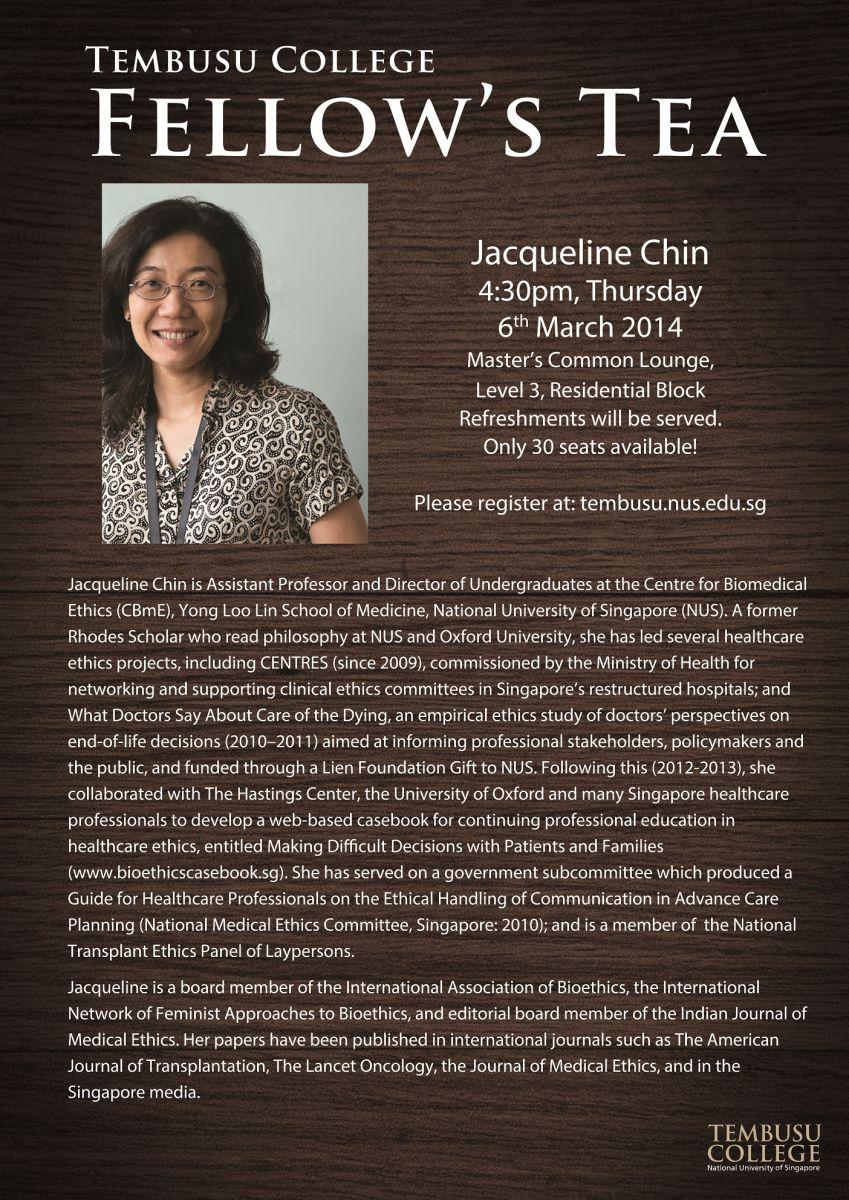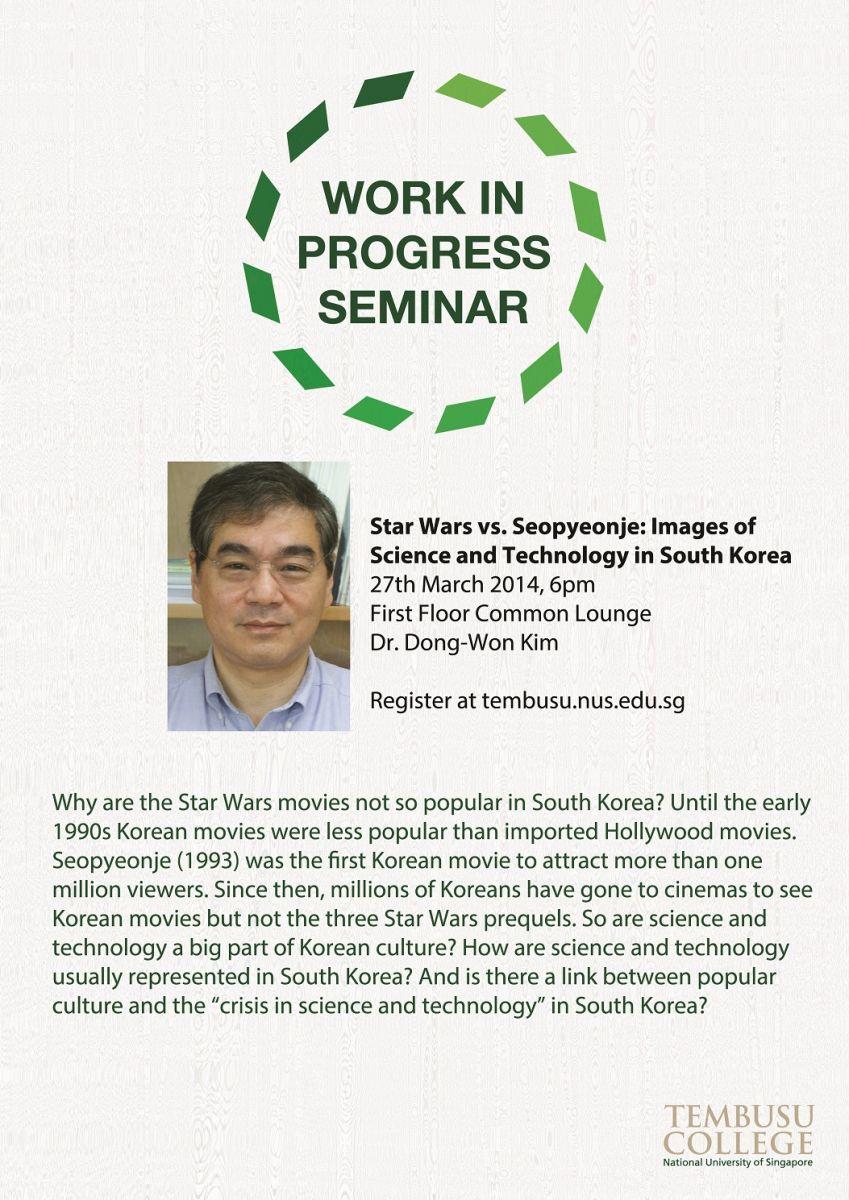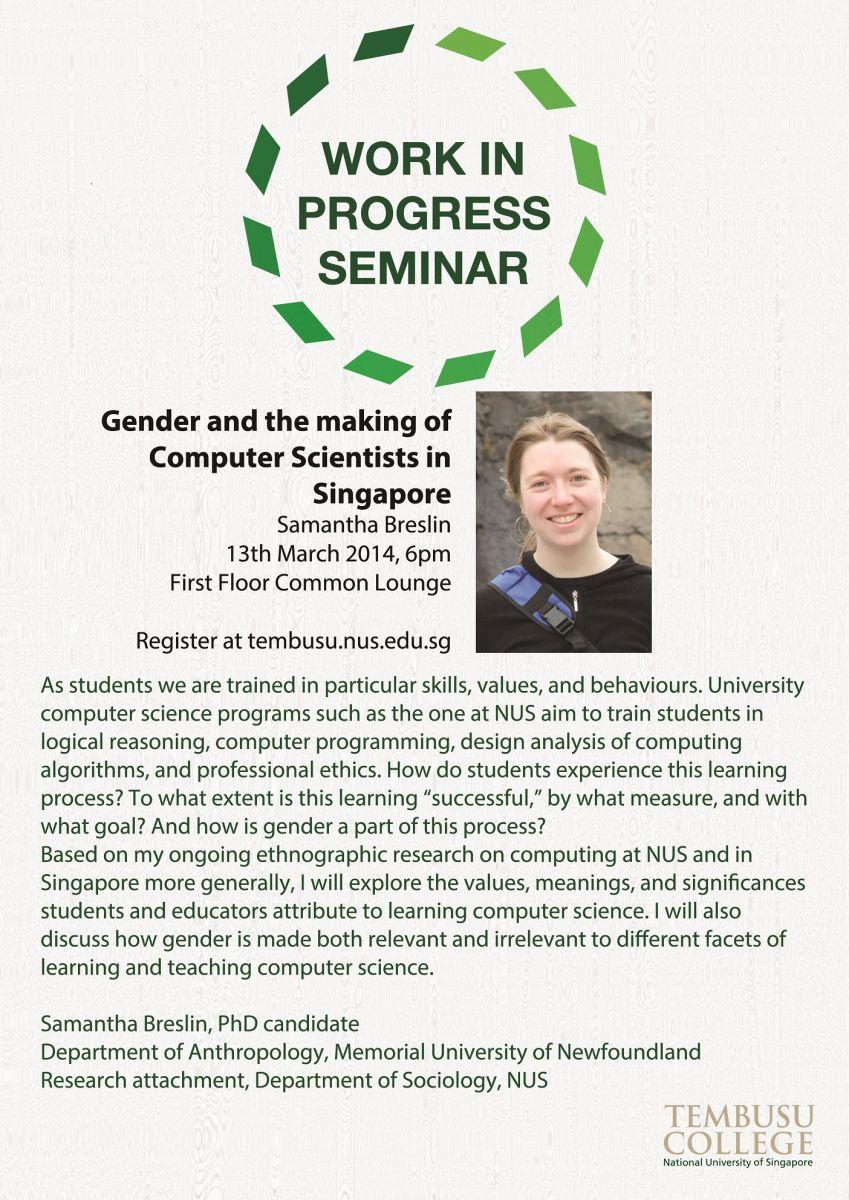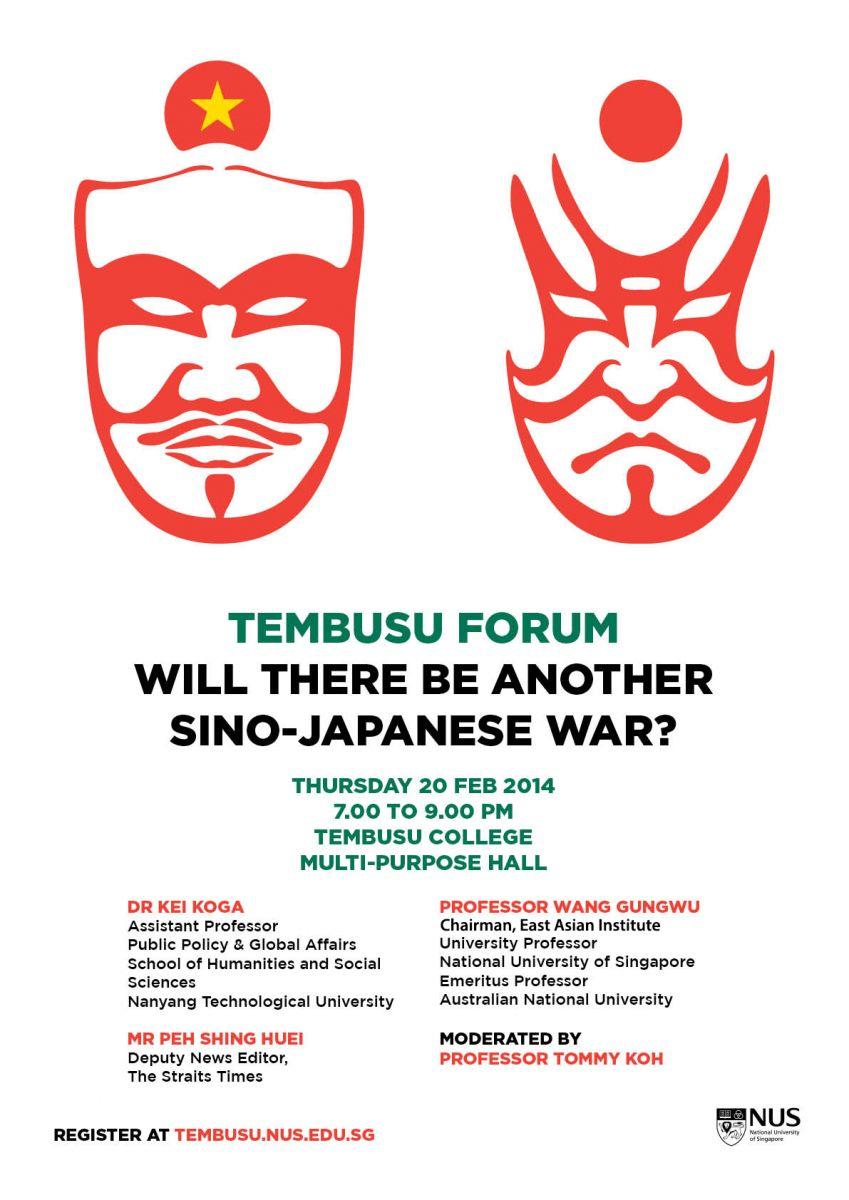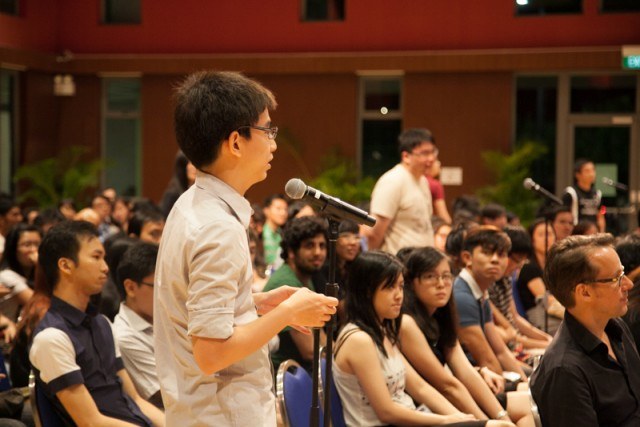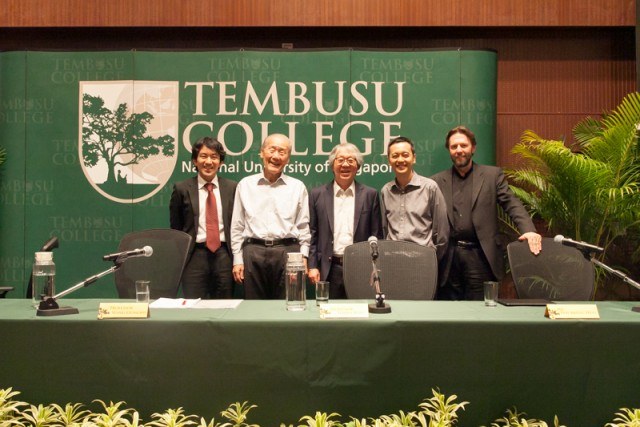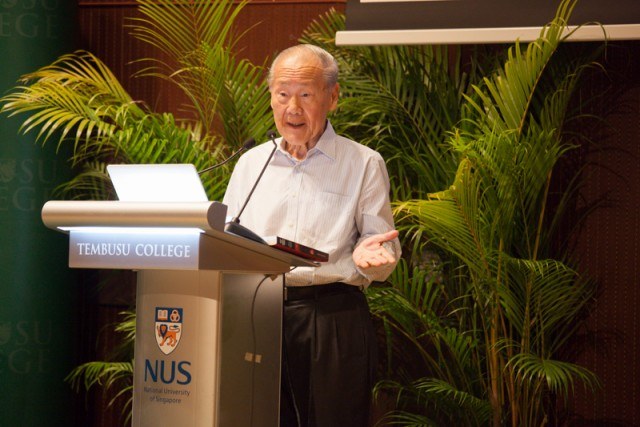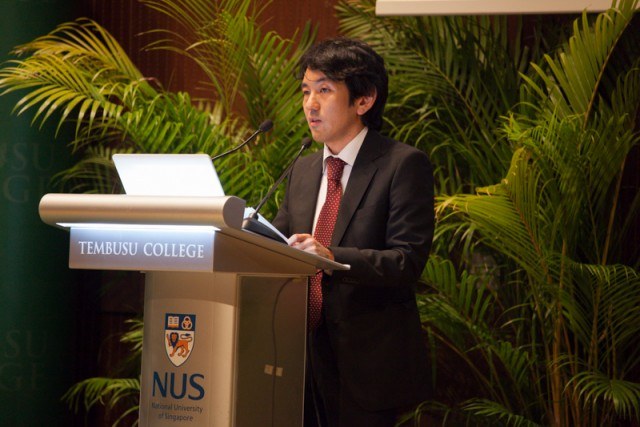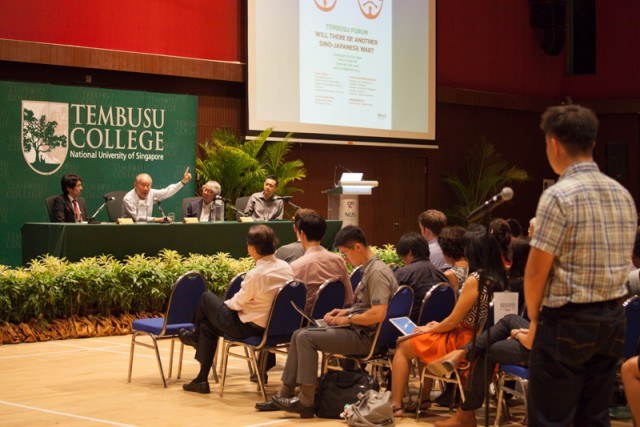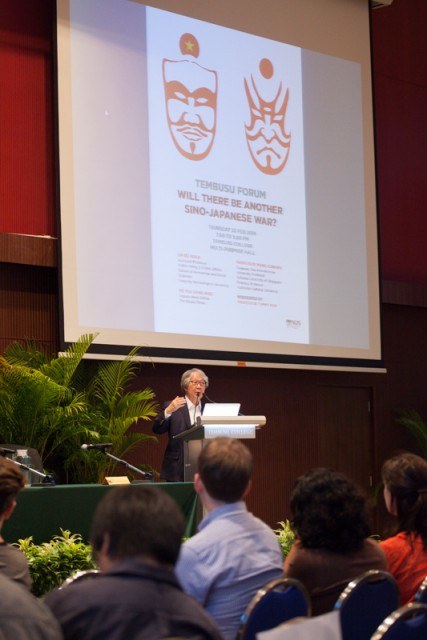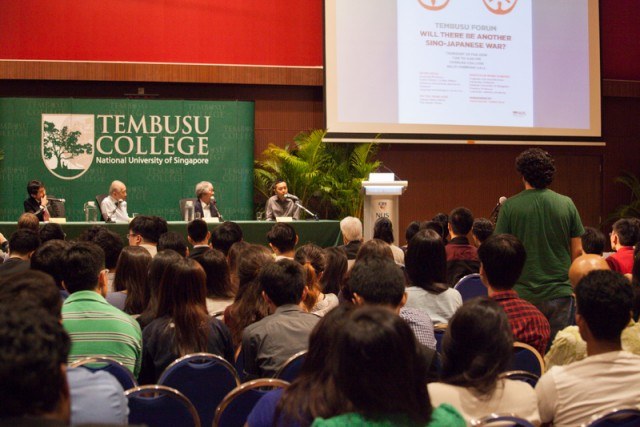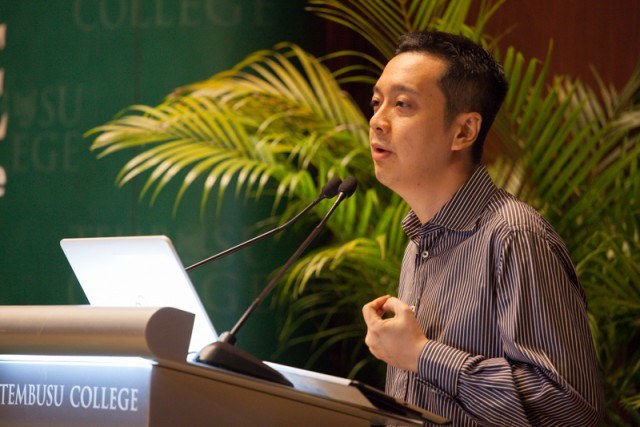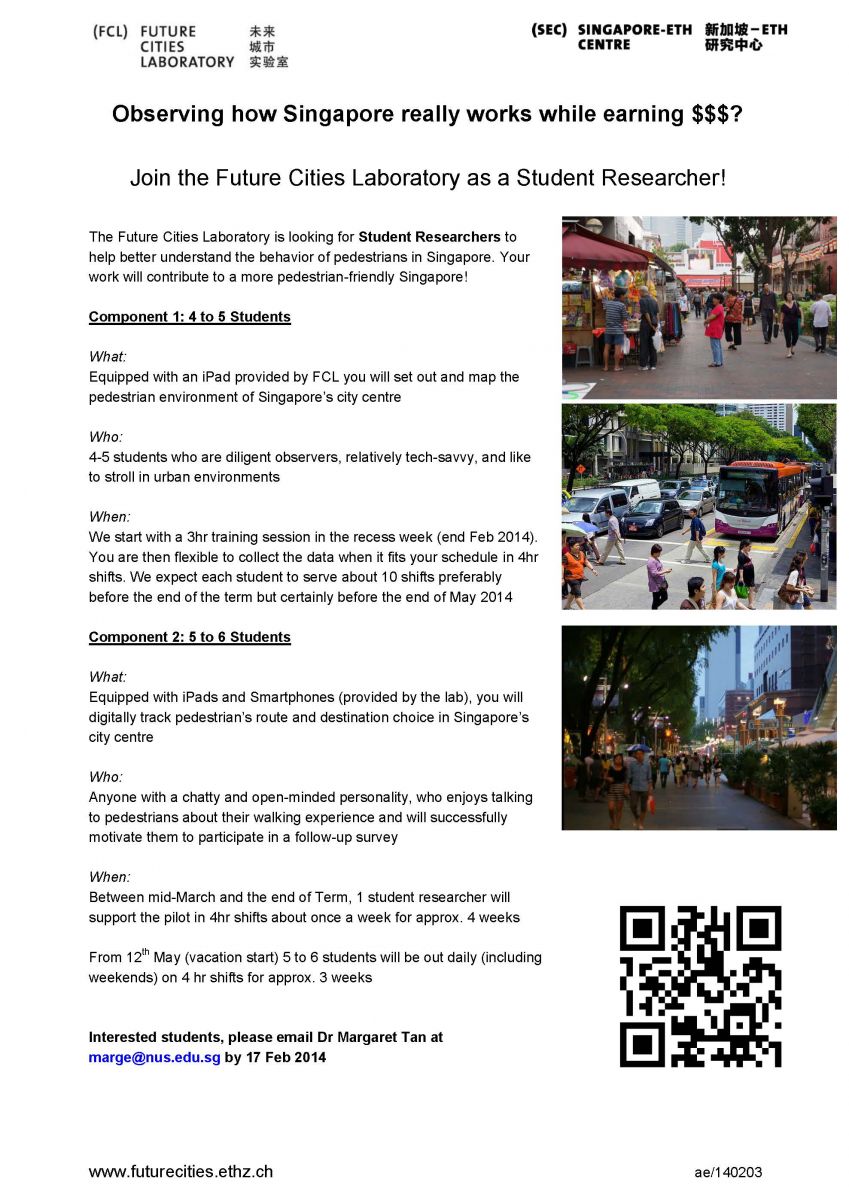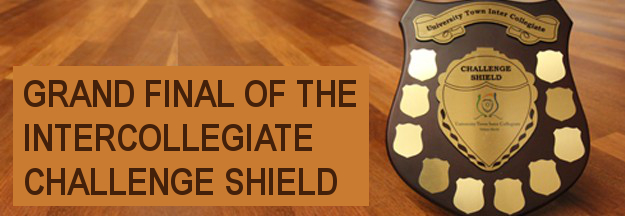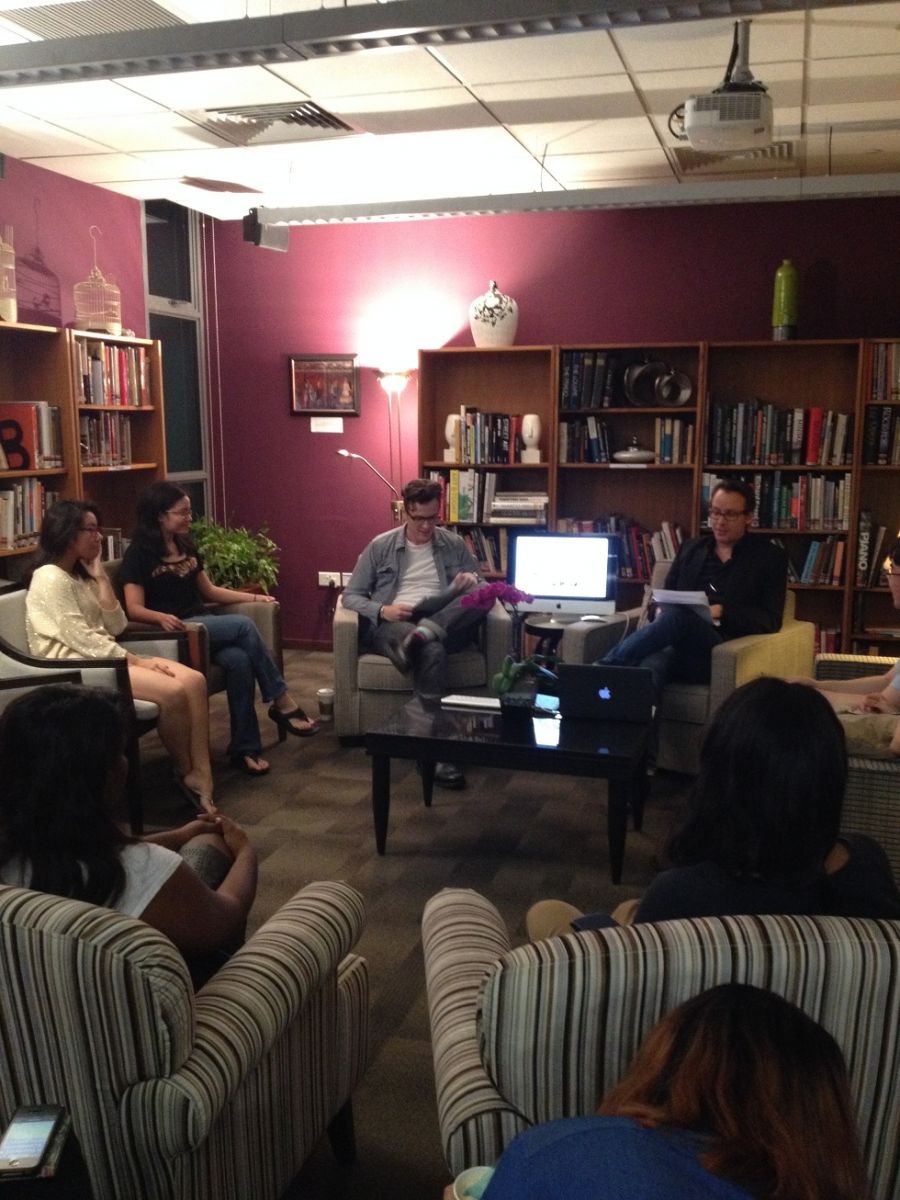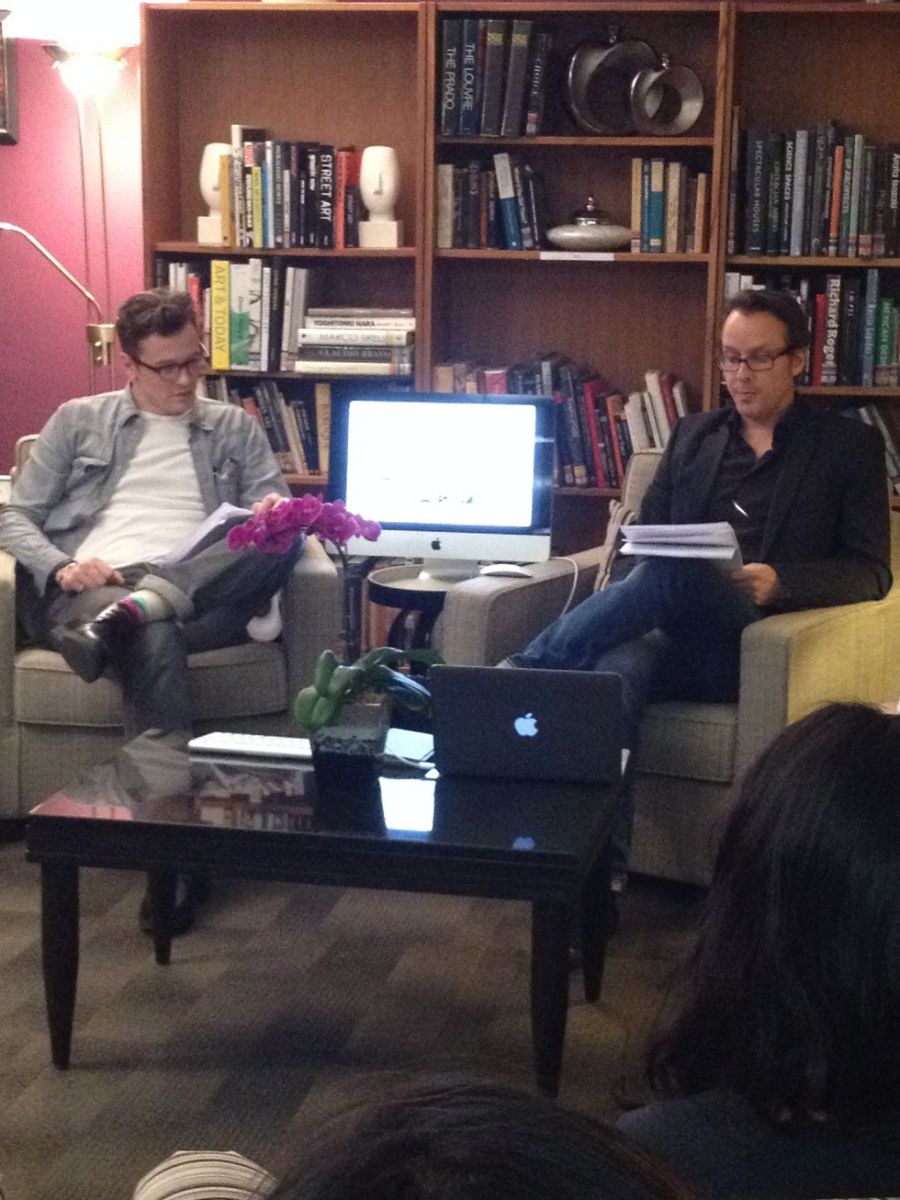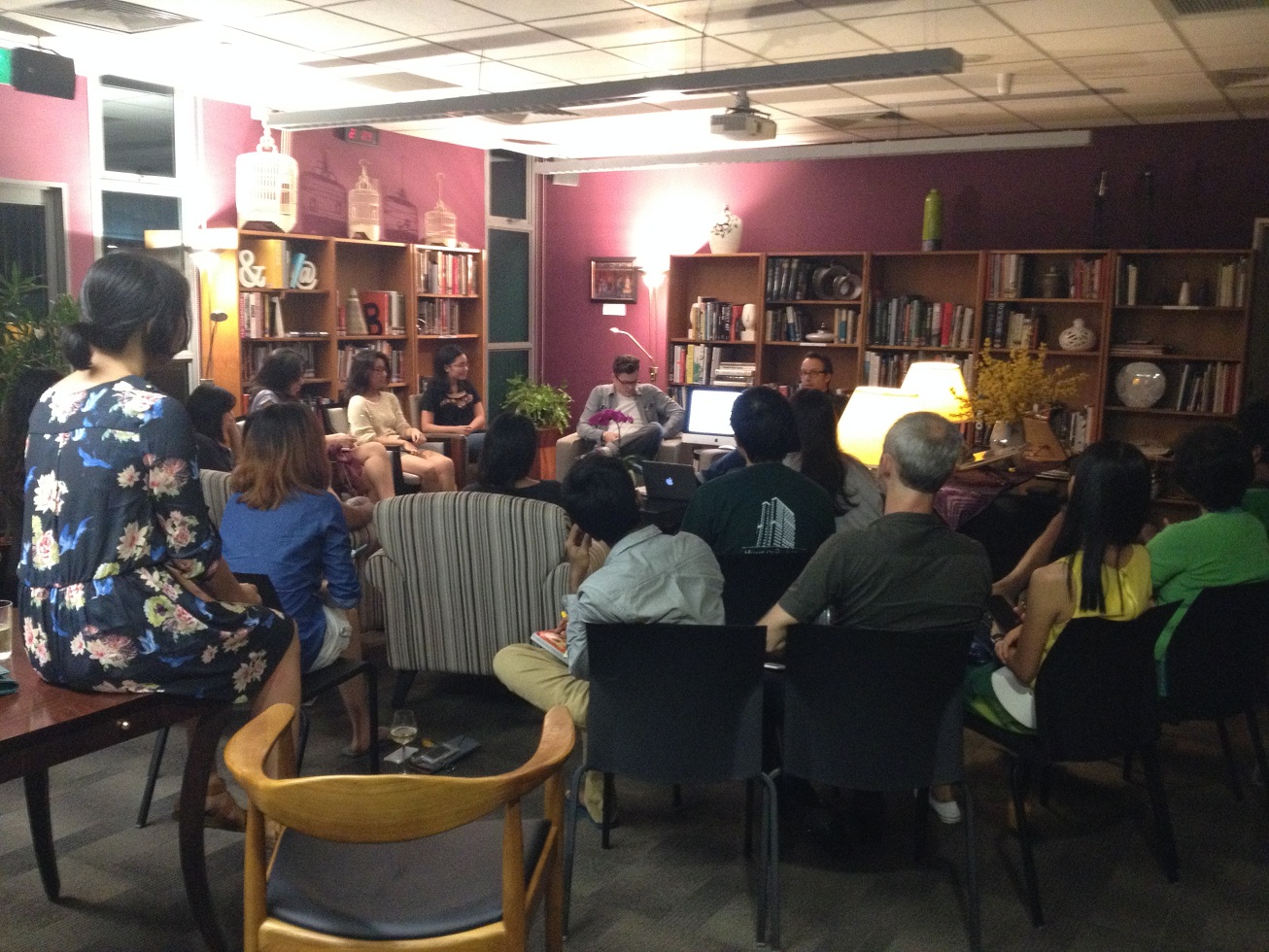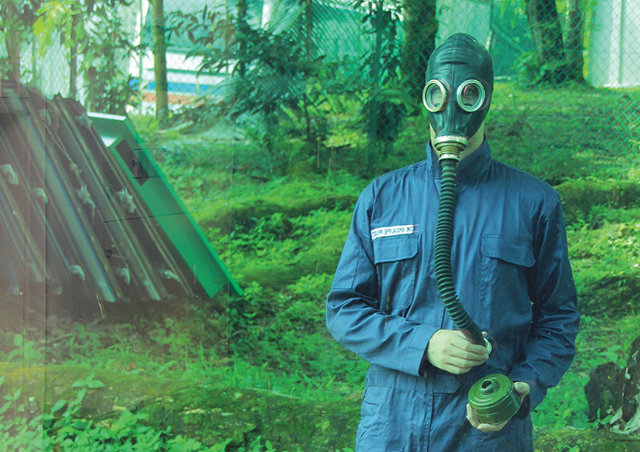Fellow’s Tea with Dr. Jacqueline Chin
Tembusu College Fellow’s Tea
Jacqueline Chin
4.30pm, Thursday
6th March 2014
Master’s Common Lounge,
Level 3, Residential Block
Refreshments will be served.
Only 30 seats available!
Please register at dev-tembusu-nus.pantheonsite.io
Jacqueline Chin is Assistant Professor and Director of Undergraduates at the Centre for Biomedical Ethics(CBmE), Yong Loo Lin School Of Medicine, National University od Singapore (NUS). A former Rhodes Scholar who read philosophy at NUS and Oxford University, she has led several healthcare ethics projects including CENTRES (since 2009) commissioned by the Ministry of Health for networking and supporting clinical ethics committees in Singapore’s restructured hospitals; and What Doctors Say About Care of the Dying, an empirical ethics study of doctors’ perspectives on end-of-life decisions (2010-2011) aimed at informing professional stakeholders, policymakers and the public, and funded through a Lien Foundation Gift to NUS. Following this (2012-2013), she collaborate with The Hasting Centre, the University of Oxford and many Singapore healthcare professionals to develop a web-based casebook for continuing professional education in healthcare ethics, entitled Making Difficult Decision with Patients and Families (www.bioethicscasebook.sg). She has served on a government subcommittee which produced a Guide for Healthcare Professionals on the Ethical Handling of Communication in Advance Care Planning(National Medical Ethics Committee, SIngapore: 2010) and is a member of the National Transplant Ethics Panel of Laypersons.
Jacqueline is a board member of the International Association of Bioethics, the International Network of Feminist Approaches to Bioethics, and editorial board member of the Indian Journal of Medical Ethics. Her papers have been published in international journals such as the American Journal of Transplantation, The Lancet Oncology, the Journal of Medical Ethics, and in the Singapore media.


